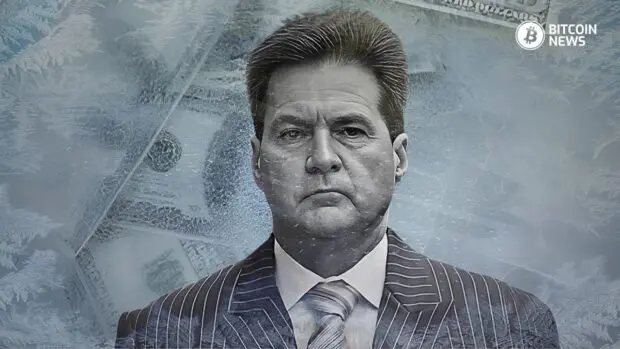In a significant legal development, a UK court has taken decisive action against Craig Wright, an Australian computer scientist who has claimed to be the creator of Bitcoin, Satoshi Nakamoto. Judge James Mellor imposed a worldwide freeze on £6 million of Wright’s assets. This asset freeze order aims to prevent him from evading court expenses tied to his assertion of being Nakamoto.
Dispute Background
The legal saga surrounding Craig Wright began when the Crypto Open Patent Alliance (COPA), an organization dedicated to advancing digital asset technologies, challenged Wright’s claims of being Satoshi Nakamoto. COPA filed a lawsuit against Wright in April 2021, contesting his assertions of being the Bitcoin creator and thereby possessing copyright to Bitcoin.
Court’s Ruling
In a landmark decision rendered on March 14, Judge Mellor delivered a verdict that dealt a severe blow to Wright’s claims. The judge not only debunked Wright’s assertions of being Nakamoto but also concluded that Wright did not author the Bitcoin white paper or the initial versions of the Bitcoin software.
This ruling was the culmination of a trial that commenced on February 5, 2024, where testimonies from early Bitcoin developers were pivotal in establishing Wright’s lack of credibility. Wright then informed Companies House in the UK that shares in his RCJBR Holding company were transferred to DeMorgan, a Singapore-based entity.
Asset Freeze Order
Following the court’s verdict, concerns arose regarding Wright’s attempts to evade the financial consequences of his loss. In a move perceived as an attempt to circumvent court expenses, Wright transferred shares of his London-based firm, RCJBR Holding, to a Singaporean entity on March 18. This action prompted COPA to urgently file for a worldwide freeze order (WFO) to prevent asset dissipation.
Judge’s Decision
Judge Mellor, acknowledging COPA’s strong claim for substantial costs and Wright’s history of defaulting on payment orders, endorsed the freezing order on £6 million of Wright’s assets.
“Dr Wright has a history of default in relation to orders for the payment of money,” stated Judge Mellor in his judgment. He further emphasized the risk of asset dissipation, stating, “COPA has a very powerful claim to be awarded a very substantial sum in costs […] I consider there is a very real risk of dissipation.”
Judge James Mellor added in the document:
“Yesterday, I granted a worldwide freezing order (‘WFO’) in the sum of £6m, on an application brought by the Crypto Open Patent Alliance (‘COPA’) against Dr Craig Wright […] Understandably, that gave rise to serious concerns on COPA’s part that Dr Wright was implementing measures to seek to evade the costs consequences of his loss at trial,”
Judge Mellor’s statement indicates that although detailed arguments on costs have not been presented, it’s clear that COPA (and the Developers) are the “winning party” and are highly likely to be granted their costs. Moreover, it’s probable that these costs will be awarded on the indemnity basis. After considering COPA’s cost arguments and anticipating potential counterarguments from Dr. Wright, the judge determined that the appropriate amount for the Worldwide Freezing Order (WFO) was £6 million.
Industry Response
The legal battle between Wright and COPA has garnered attention from key players in the Bitcoin industry. COPA, consisting of 33 members including prominent entities like Coinbase, Meta, and MicroStrategy, has been steadfast in its pursuit to challenge Wright’s claims. The Bitcoin Legal Defense Fund also weighed in on the matter, highlighting the importance of protecting the integrity of Bitcoin’s development process from frivolous lawsuits.
Conclusion
The UK court’s decision to freeze £6 million of Craig Wright’s assets marks a significant development in the ongoing dispute surrounding the identity of Bitcoin’s creator. With Judge Mellor’s ruling, Wright’s claims of being Satoshi Nakamoto have been unequivocally refuted, paving the way for COPA to pursue legal remedies for the expenses incurred during the trial. As the Bitcoin community awaits further developments, this case underscores the importance of accountability and transparency in the realm of digital currencies.










